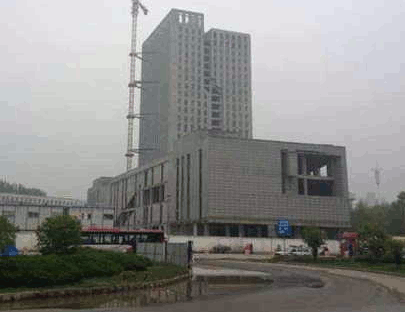China’s real estate industry witnessed its second significant default in less than a month last week when a Nanjing property developer failed to repay a RMB 105.4 million (US$16.9 million) inter-company debt from a Shenzhen-listed shipbuilder.
The default on a RMB 90 million loan, as well as another 15.4 million in interest, by Nanjing Fudi Property Developing Co was revealed on April 15th in an announcement from Sainty Marine Corp (002608.SZ) which indicated the loan repayment had been due on April 9th.
Nanjing Fudi’s insolvency follows after the collapse of Ningbo-developer Zhejiang Xingrun Real Estate, which left creditors scrambling for repayment of RMB 3.5 billion in debts.
China’s real estate companies have come under increased pressure this year as housing prices have slowed their previously inexorable climb and home sales have dropped by as much as 50 percent in the country’s largest cities. Smaller communities are said to be facing similar drops in sales volumes.
The housing slowdown has made lenders cautious about extending additional credit to the industry, reducing the funding alternatives available to real estate firms such as Nanjing Fudi.
Inter-Company Loan Defaults Start to Spread
The same day that the property developer’s default was revealed, Shenzhen-listed Qiaqia Food (002557)announced it was suing a fellow Chinese food processing firm for failing to pay interest on a RMB 40 million yuan loan.
As revealed in a report by Reuters, Chinese companies loaned each other RMB 2.55 trillion in what are called entrusted loans in 2013. The entrusted loans are arranged through banks but have no guarantee from the financial institution.
The companies loaning the money in these entrusted loans are often state-run companies with greater access to credit who then loan out the money to companies in higher growth industries such as real estate. During 2013 China’s traditional banks cut back sharply on loans to the property sector, forcing many developers to turn to other channels for financing.
Creditor Moves to Seize Nanjing Project Used as Collateral
According to a statement from Sainty Marine, a court in Nanjing has already ordered the seizure of part of Fudi’s Furun Plaza commercial development project due to the company’s default. The asset had been used as collateral on the loan, however, the shipbuilder also indicated that other creditors have also filed claims for the same project, which had apparently been used as collateral on more than one loan.

Leave a Reply